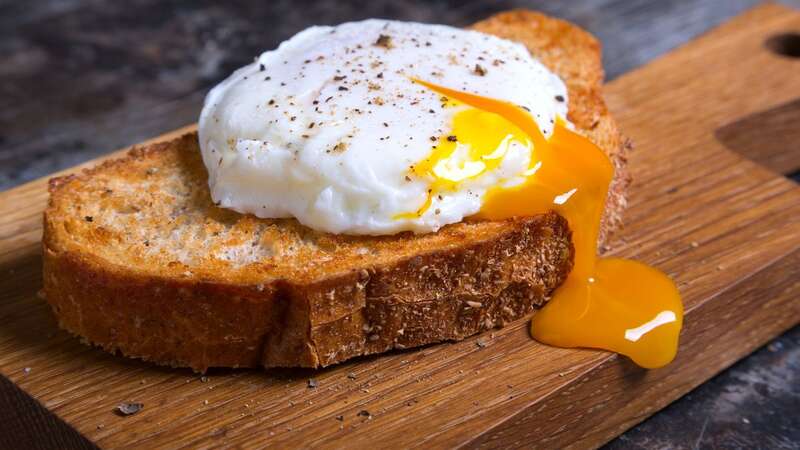
There's nothing better at breakfast time than a perfect poached egg. But there's a real nack to mastering the method to ensure its 'eggcellent' every single time.
Nigella Lawson might be one of the country's best-loved cooks but even she had admitted that she had a fear of poaching eggs, and really struggled to get the hang of it. Until recently that is. Speaking at the Cheltenham Literature Festival, Nigella said she has discovered a method that really works - and luckily she decided to share her secret.
The first step is to crack an egg into a tea strainer over a cup and allow all the very 'watery bits' to fall through.
 Nigella's method makes perfect eggs (Toronto Star via Getty Images)
Nigella's method makes perfect eggs (Toronto Star via Getty Images)Then put the rest of the egg into another cup and add a teaspoon of vinegar or lemon juice, and let it stand while a small pan of water comes to a boil. Turn off the heat, though leave the pan where it is, and slowly pour the egg in from the cup.
According to her website, should you be poaching more than one egg, you might want to leave the water on a very, very low heat, but don't let any bubbles come to the surface. If you want, you can encourage the edges of the white to curl up over the yolk with a slotted spoon. Leave it in the water for four to five minutes depending on the size of the egg, and remove with your slotted spoon, letting any water clinging to it drop off. Done!
 Morrisons is slashing over 130 prices on its saver-products from today
Morrisons is slashing over 130 prices on its saver-products from today
It comes after Nigella shared her top tip for ensuring perfect pasta, called the "Vincenzo Agnesi method" which is said to "reduce the risk of overcooking".
So, what does the method entail? Well, you still need to bring a pan of water to the boil as normal, but once you've dropped your pasta in, you only need to cook it for two minutes before turning the stove off, putting a lid over the pan, and leaving the pasta until it's cooked. The water in the pan will stay hot even without the hob burning away, so your pasta will still cook - and should even be done in the same amount of time that the package states.
Nigella also recommends holding back some of the water once the pasta is cooked to help bind your sauce to your pasta once the time comes to mix the two together. She also said the water you cook your pasta in should be "as salty as the Mediterranean", although she noted that "contemporary dietary mores could not run more counter to such a recommendation".
Read more similar news:
Comments:
comments powered by Disqus

































